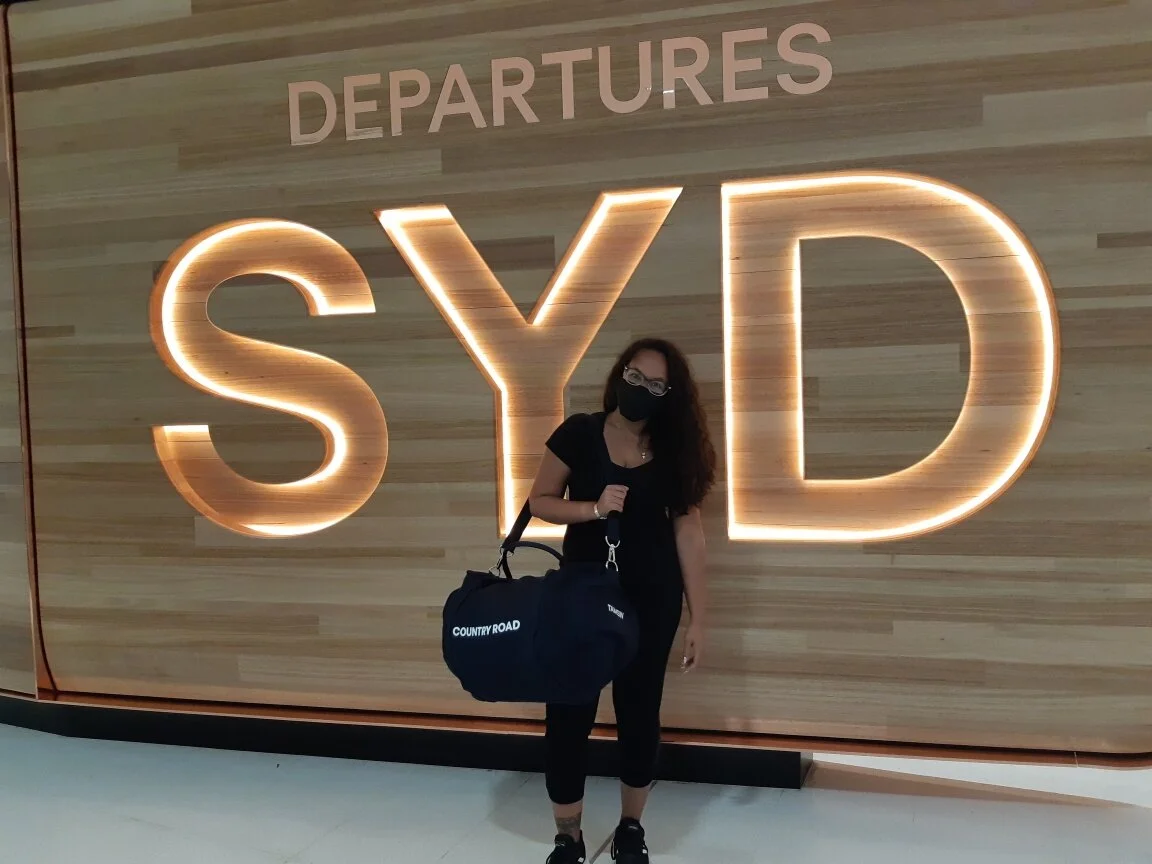Title image: Unsplash - Jerry Zhang
Pandemic. Coronavirus. COVID 19. Social distancing.
Are you sick of hearing these words yet? I know I am. However, it’s better than being actually sick with the contagious disease that’s swept the world.
My time living abroad was heavily impacted by the Coronavirus and the associated rules, restrictions and guidelines surrounding the outbreak. Ultimately, it has resulted in me returning to London earlier than I had planned, as it strictly limited my work and travel options in a way no one would expect, or want, from a ‘year abroad’. While it wasn’t the year I had planned, I still 100% made the most of my time, and learned so much, but it’s early conclusion meant boarding a long-haul flight amidst a pandemic - potentially pretty risky! After checking whether or not you are eligible to leave the country (rules vary from country to country), here are the ways you can prepare for this new way of flying:
Before heading to the airport
Choose your mask wisely: I have three different types of mask: two disposable styles I acquired at the beginning of the virus and a reusable cloth one. While I usually prefer the reusable one, I find the disposable ones more breathable - essential when you will need to sleep in a mask on a long-haul flight.
Turbulence-blurred pic - but look at the space!
Bring what you’ll need with you: Sydney Airport’s Duty Free, WH Smiths, and the majority of other outlets are completely closed at the moment, and I presume it is the same in most countries that are taking this pandemic seriously (…) I was able to get some water and chips from an open kiosk, but gone are the days where you can browse magazines, sweets and perfumes for ages before your flight.
Get familiar with the airlines’ and destinations requirements: With these new times, comes new changes to travelling. Qatar Airways, with whom I flew back to London, require all those flying to wear a mask *and* a face shield for the duration of the flight (apart from when eating). They provide the face shield. There is a form you must fill out from the UK government website within the 48 hours before you land in the UK (not that they chased up or checked any of the details once I arrived, or self isolated…) I flew once while in Australia too, to Byron Bay. For this trip, while there were no prerequisites on the flight, our AirBnbs requested us to present a negative COVID test result.
While on board
Maintain your distance: Thankfully, on my first flight (14 hours, 55 mins, oh boyyyy) it was SO empty. Upon check in, I asked how many people were on the flight, and was told less than 100. Then, at the gate, the staff did a headcount and counted only 42 people! I had a whole row to myself, with no one in the row behind me, in front of me or next to me, and was able to fully stretch out. The staff were SO attentive as they had so few people to look after; the turbulence was pretty bad, and a kind air hostess kept reassuring me, topping up my wine and bringing me impromptu snacks. The second flight was a little more full - one person per row - so best believe I kept my mask and shield securely on. It’s worth noting my first flight was from a country whose borders are currently closed, hence the minimal numbers: apart from temporary visa holders, like myself, you have to apply to the government to leave the country, and they have it approve it before you can fly.
Prep your ears: This may sound like a pretty obscure statement, but behind your ears will be pretty sore for a day or two after a long flight in the pandemic. I usually wear glasses when flying, instead of my contacts, but coupled with the mask loops, the band for the face shield and the airplane headphones, my ears did hurt; one friend suggested popping some Vaseline on behind the ol’ things, or using bobby pins to pin back the mask and shield band.
Keep clean: Wash ya damn hands before and between meals. Wipe down the surfaces around you. It’s pretty simple.
On arrival at your destination
Do I need to self isolate?: I could talk for hours on this matter, but I’ll try and keep it succinct. In Oz, you arrive in the country, they put you on a bus, and you’re driven to a government-mandated hotel for 14 days of self-isolation. It may seem tough, but it has worked to minimise community transmission. Hey, look what happened when people breached the rules in Melbourne; numbers got out of hand (similar to “London on a good day”), and they went into stage 4 lockdown for months.
According to the UK government website, if you come *directly* from Australia, you don’t need to isolate. Stupid rule, because Australia is one of the furthest countries from the UK and apart from one carrier who sells direct flights from Perth - who isn’t even running these flights at the moment - you will have a stopover. Qatar isn't on the list, so I had to self-isolate on my return. I had no qualms about this; we are in a pandemic, it makes sense. However, what shocked me is that, apart from being asked if I’d filled in the form at check-in in Sydney, and when I disembarked the plane, NO ONE CHECKED. No one asked to see the form. No one has contacted me to see if I am at the address I said I would be. There was literally NOTHING stopping me from stepping out of Heathrow, making my way to the nearest Tesco and licking every fruit, vegetable and handle I could reach. I could have got on the Tube. I could be house hopping right now. Apart from a temperature check at Qatar, how do they know I don’t have Covid and I’m not spreading it? They don’t. I was mixed with people who were coming from all over in baggage reclaim. Anyway, the point of this rant is to check if you need to self-isolate - not that BoJo and crew seem that concerned...
Give yourself time to adjust: This one is most applicable to those who are migrating during the pandemic, rather than having just gone on a holiday or a short-term trip. My experience with the Coronavirus thus far has been guided by the Australian government, and they have approached the situation very differently to the UK government. My opinions, and criticisms of the UK public and government, may be at odds with some of my friends and peers, but the proof is in the pudding… just compare the numbers and soak in what a shambles the UK’s response is *upside-down smiley face.*
I felt totally at ease going to restaurants and into the city back in Oz because of how strict the rules were initially, and the steps that continue to be taken; at the time of publication, the cases to date in the whole of New South Wales since March are less than a 10th of London alone. I’m anxious being in this city, if I’m honest, and I’ve no desire to socialise in London right now; there is a far larger chance of me catching it, and passing it on here. I’d love to travel, given that my time in Oz was cut short, but rather than fearing catching it in a different country, the idea of sitting on a plane with Londoners is a big no-no for me.
If you do need to isolate: Make sure you maintain healthy eating and exercise, where possible. That sounds like such a naggy mum thing to say, but it’s so easy to get into your head when you can’t go outdoors for 14 days, especially when you weren’t expecting to come home when you have. Amongst other things, I used the time to job hunt and to plot how to surprise my family and best friend with my early return (it was easy to keep up the time-difference texts because of jetlag!)
What do you think about flying during this pandemic? Do you think it is okay to go on holiday at this time?



